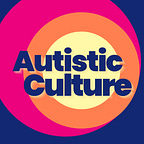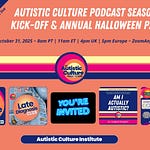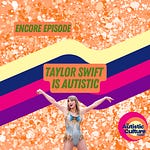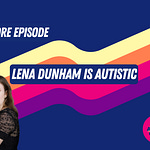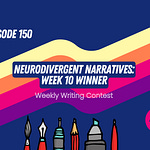An episode that’s Much Ado About Autism!
In Episode 109 of The Autistic Culture Podcast, Matt and Angela are joined by Shakespeare scholar Dr. Sonya Freeman Loftis to explore how Shakespeare’s plays connect with autistic experiences, from emotional intensity to characters that reflect neurodivergent traits.
Here’s what’s in store for today’s episode:
We dive into how autistic readers and theatergoers relate to Shakespeare’s tragic heroes, including Hamlet, Coriolanus, Othello, and King Lear—all of whom embody autistic-coded themes like social disconnect, moral intensity, and emotional overload.
Sonya shares her journey studying Shakespeare through a disability lens and discusses the rise of autism-friendly and relaxed performances in theaters like The Globe.
We unpack iconic lines like “To be or not to be” as expressions of autistic inertia, and how Shakespearean language invites bottom-up processing, making it especially accessible to neurodivergent minds.
The episode also touches on ableism in Shakespeare’s works, such as Othello’s portrayal and the broader theme of “otherness” that mirrors how autistic people are often treated in society.
From Shakespeare therapy in prisons and elder care to modern neurodivergent Shakespeare meetups, the Bard’s works continue to offer catharsis, connection, and reclamation for the autistic community.
Finally, we consider whether Shakespeare himself could have been neurodivergent, given his prolific output and atypical perspective on language and emotion.
“As a person with a disability, I felt frustrated sometimes when I would go to Shakespeare conferences and find that most of the focus was only on characters. And I thought, ‘okay, but what about the real people with disabilities who read Shakespeare and perform in Shakespeare plays and go to Shakespeare theaters?’ And, you know, why isn’t anyone writing anything about them?” - Dr. Sonya Freeman Loftis
“One of the things that makes [Shakespeare] autistic culture representative is that because it is not in vernacular English, you have to bottom-up process. You need a dramaturg. You have to break down every single thing.” - Dr Angela Kingdon
“Growing up as an autistic person, I never understood all of the conversation around me. I could understand some of it, but I never understood all of it. Neurotypical people use so many words, and there was so much conversation. And I feel like that acceptance of not understanding it all has helped me to be a better reader of Shakespeare.” - Dr. Sonya Freeman Loftis
“Average people throughout history did not make history. The average person lived and died largely forgotten, living an average life. If you do something that is divergent, like making a whole bunch of plays that live on for centuries after your death, that is indicative of neurodivergence. Average people live average lives. And if you want to be outstanding, you've got to be standing out.” - Matt Lowry LPP
Did you enjoy this episode? All the world’s a stage, but Shakespeare’s works might just be the most autistic of them all. We dive into the deeply neurodivergent themes, characters, and language that make the Bard’s plays resonate with the autistic experience. Let us know your thoughts in the comments, and use #AutisticCultureCatch to share your favorite autistic Shakespeare moments!
Show Notes:
Dr. Sonya Freeman Loftis – Academic Profile
Explore Dr. Loftis’s publications, research, and academic work on disability studies, literature, and Shakespeare:
Morehouse Academia.edu Profile
“William Shakespeare Was on the Autism Spectrum (Asperger’s Syndrome) – First Draft”
A compelling exploration of Shakespeare’s potential neurodivergence, published on ResearchGate.
Read the article on ResearchGate
Related Episodes:
Follow us on Instagram
Find us on Apple Podcasts and Spotify
Learn more about Angela at AngelaKingdon.com
Our Autism-affirming merch shop


